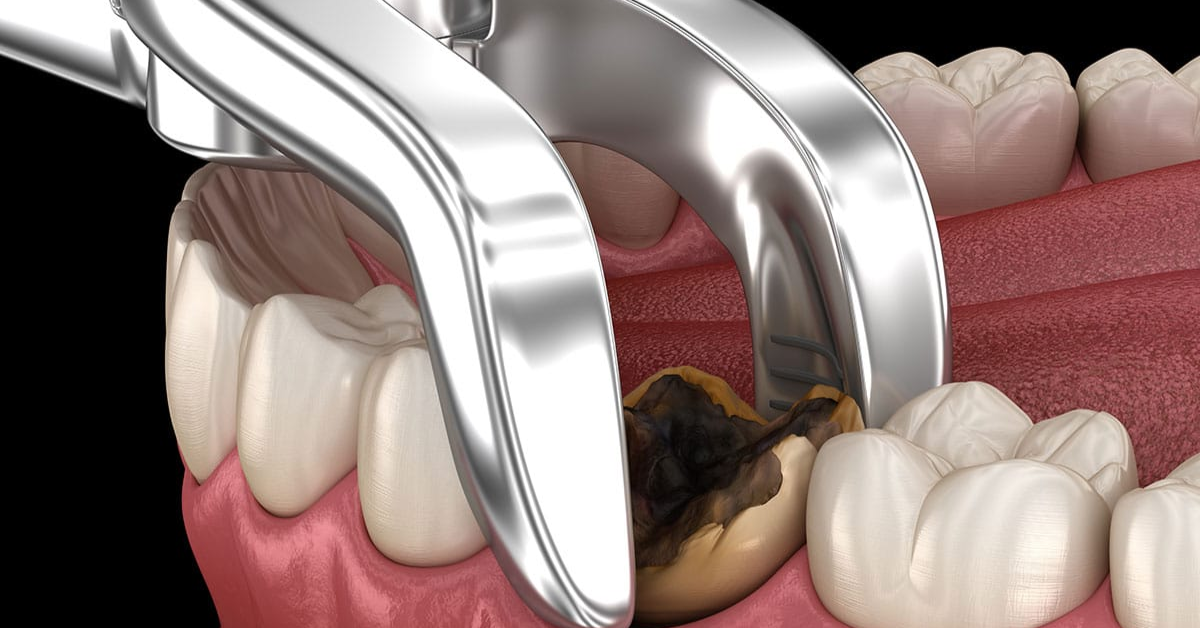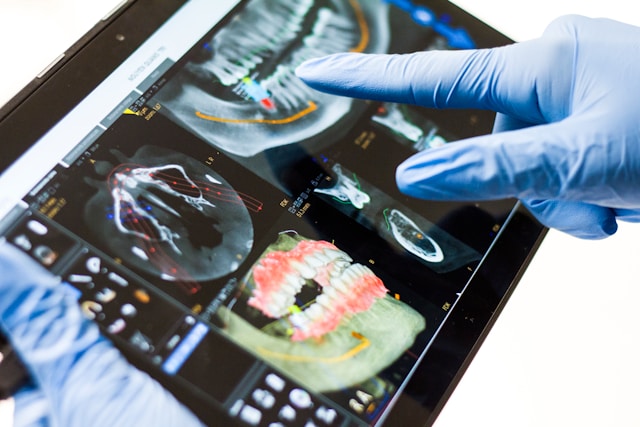Picture this: You’re sitting in a dentist’s chair, feeling a little nervous about the procedure you’re about to undergo. The dentist walks in and asks, “Are you ready to say goodbye to your wisdom teeth?” You nod, and before you know it, the extraction procedure is over, and you’re on your way to a speedy recovery.
Wisdom teeth removal may sound scary, but it’s a common dental procedure that can save you a lot of pain and discomfort in the long run.
In this blog, we’ll delve into the world of wisdom teeth removal and give you all the information you need to know, from what to expect during the procedure to tips for a smooth recovery.
What Exactly is Wisdom Teeth Removal?

When it comes to dental health, wisdom teeth can be a bit of a headache. These are the last set of molars that usually emerge in your late teens or early twenties, located in the back of your mouth in the upper and lower jaws.
While many people have all four of their wisdom teeth, some may only have a few or none at all. In fact, studies estimate that anywhere from 5% to 37% of people may be missing one or more of their wisdom teeth.
Regardless of how many you have, wisdom teeth removal may become necessary to prevent dental problems and discomfort.
Wisdom Teeth Extraction Procedure

To determine if your wisdom teeth need to be removed, your dentist will take x-rays of your mouth and evaluate the position of the teeth. Depending on their location, you may be referred to an oral surgeon for the procedure. In most cases, all four teeth are removed during the same visit.
Anesthesia will be administered for the surgery, with the type depending on the complexity of the procedure. You may receive local anesthesia through a shot to numb the area, sedation anesthesia to put you in a light sleep, or general anesthesia through an IV or gas mask to induce deep sleep.
After administering anesthesia, the dentist or surgeon will make an incision in the gum tissue to access the tooth. If the tooth is covered by bone tissue, this may also need to be removed. The tooth will then be extracted. Finally, the dentist or surgeon will close the wound using stitches.
How Do I Know If My Wisdom Teeth Need to Be Removed?
While wisdom teeth can be useful for chewing, they often don’t have enough room to grow properly, leading to various dental problems. If you’re experiencing dental pain near the back of your mouth, this may be a sign that your wisdom teeth must be removed.
Additionally, if you notice that food and debris are getting trapped around your wisdom teeth or you’re developing gum disease or tooth decay around your molars, this could be an indication that extraction is necessary.
In more severe cases, you may develop a cyst around one or more of your wisdom teeth or sustain damage to nearby teeth or surrounding bone. Your dentist may recommend wisdom teeth extraction to prevent further dental problems.
Wisdom Teeth Removal Cost
The wisdom teeth removal cost varies depending on the type of removal you need.
The cost of simple wisdom tooth extraction ranges from $75 to $200. For impacted wisdom tooth removal, the cost is slightly higher. The cost falls between $225 and $600 per tooth.
How Painful is Wisdom Teeth Extraction?

One of the biggest concerns people have about wisdom teeth removal is the level of pain they can expect to experience during and after the procedure. While everyone’s pain tolerance differs, most people will experience some discomfort during recovery.
During the wisdom teeth extraction process, you should feel no pain. Fortunately, advancements in dental techniques and pain management have made wisdom teeth removal much more comfortable than in the past. Dentists and oral surgeons typically use local anesthesia and sedation to ensure patients are as comfortable as possible during the procedure.
After the procedure, the extraction site might feel a bit tender for a few days.
Is Wisdom Teeth Removal a Big Surgery?
For most patients in optimal health, wisdom teeth extraction is quite common and minimally invasive. It is often recommended as a preventative measure to protect your pearly whites from future problems and boost your oral health.
The answer to “Is wisdom teeth removal a big surgery’ is dependent on a range of factors, including the individual’s unique situation and the complexity of the extraction procedure. In most cases, wisdom teeth removal is considered a minor surgical procedure that can be performed in a dentist’s office.
Wisdom Teeth Removal Recovery Time
Wisdom teeth removal is a routine procedure, with recovery time varying depending on each person’s individual case. Generally, it can take up to a week to fully recover, but recovery time may be longer if your wisdom teeth are impacted.
Impacted teeth are those that have not emerged from below the gums, which can cause more pain and swelling than simple extractions. Following post-operative instructions is essential to promote a faster and smoother recovery.
Do’s & Don’ts of Wisdom Teeth Removal Aftercare- As Suggested by Dental Experts
Abiding by the do’s and don’ts mentioned below as part of the aftercare process is crucial to a speedy recovery.
Do’s
- Rest and relax for the next few days, but don’t stay bedridden.
- Elevate your head to reduce swelling.
- Apply an ice pack for 15 minutes on and 15 minutes off for 1-2 hour periods during the first 24-48 hours after the extraction.
- Bite on cotton gauze to help stop bleeding.
- Gargle with a salt-water solution once a day to keep the area clean.
- Stick to liquid and soft foods like soups, mashed potatoes, yogurts, milkshakes, and smoothies for a few days.
- Eat on the side opposite the extraction to avoid disturbing the wound.
- Do jaw exercises by slowly opening and closing your mouth, but not immediately after the extraction.
- Drink plenty of fluids, especially water, but avoid using a straw.
- Take prescribed medicines, and don’t skip a dose.
- Brush your teeth gently from the second day after surgery, but avoid the extraction area.
Don’ts
- Avoid using straws. Don’t suck, spit, smoke, or consume alcohol. By avoiding these, you aid in maintaining the blood clot that forms over the extraction region.
- Immediately after your surgery, it is highly recommended that you don’t drink, eat, or talk.
- Stay away from solid foods. Avoid popcorn, potato chips, and other hard or crunchy foods.
- Avoid poking into the gap created by the extraction with your tongue, finger, tissue, or toothpick. Doing so can delay healing, cause bleeding, and increase the risk of developing a dry socket.
- Don’t rinse your mouth too vigorously, as the pressure can dislodge the blood clot and lead to complications.
Schedule Your Wisdom Tooth Extraction Today at RiverRock Dental
If you want your wisdom tooth extracted by the best dentists in Shakopee, Minnesota, look no further than RiverRock Dental.
We provide comprehensive solutions to wisdom teeth extraction, prioritizing personalized care and safety. So ditch your worries and schedule an appointment today by calling us at 952-445-5556. You can also get in touch with us by emailing us at riverrockdds@gmail.com.






